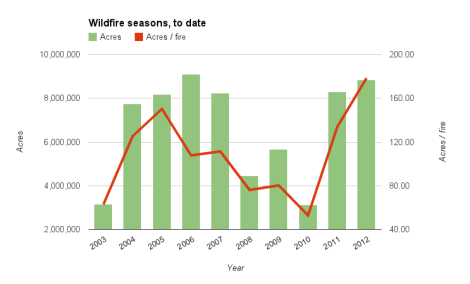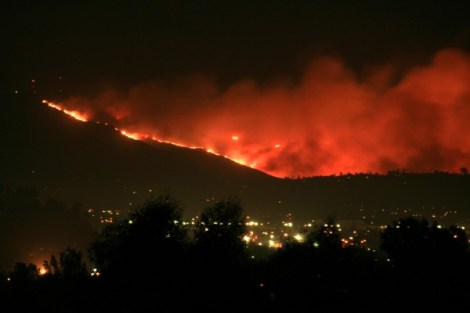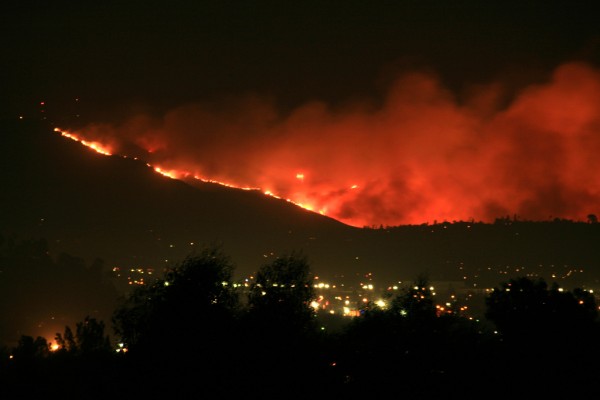This has not been the worst year for wildfires in the past decade.
At least, not in terms of raw numbers. So far, 2012 has seen 49,555 wildfires in the U.S. Sounds like a lot, but it’s actually the fewest number of fires in 10 years. Where 2012 excels is in the ferocity and scale of the fires, the number of acres burned per fire, as we’ve noted before.

National Interagency Fire CenterClick to embiggen.
What this means is that the fires are putting an unexpected strain on government resources. From the Washington Post:
In the worst wildfire season on record, the U.S. Department of Agriculture Forest Service ran out of money to pay for firefighters, fire trucks and aircraft that dump retardant on monstrous flames.
So officials did about the only thing they could: take money from other forest-management programs.
However:
But many of the programs were geared toward preventing giant fires in the first place, and raiding their budgets meant putting off the removal of dried brush and dead wood over vast stretches of land — the things that fuel eye-popping blazes, threatening property and lives.
Recently, Congress stepped in and reimbursed the Forest Service and the Interior Department, which plays a much lesser role in fighting fires, with $400 million from the 2013 continuing resolution, allowing fire-prevention work to continue. Forestry experts at state agencies and environmental groups greeted it as good news.
However:
But they also faulted Congress for providing at the start of the fiscal year only about half of the $1 billion it actually cost to fight this year’s fires. …
This year’s wildfire burn was almost 8 million acres at the end of August, about the time that the budget allocated to fight them ran dry.
We touched on this sort of problem briefly a while ago, when considering the effects of climate change on cities. Climate change means unpredictable weather and disaster occurrences. Unpredictable means that they won’t be accounted for in budgets. Which means that government agencies will be left scrambling, unless they have a rainy-day fund or increase revenues — neither of which is likely in the current political climate.
If this year’s fire severity continues in the future, but the number of fires increases, budgets to fight them will be consumed far earlier. Which could result in disasters far from the front line of the blaze, as governments scramble to pay the bills.

A wildfire burns near San Diego.
Hat-tip: 350.org.



